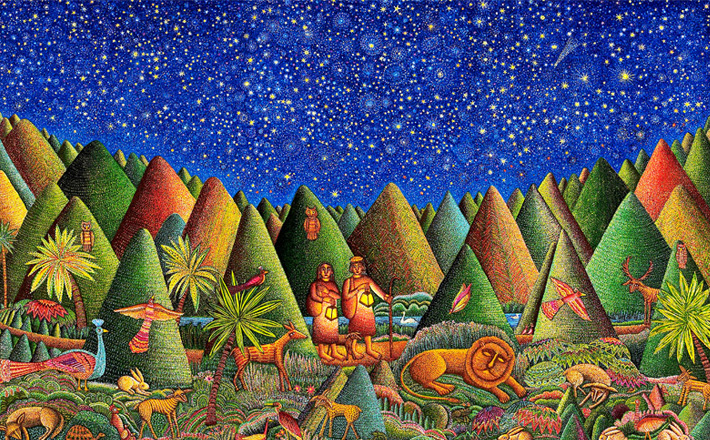Commentary on Job 38:25-27; 41:1-8; 42:1-6
[This is Week 5 of a 6-week preaching series on Job.]
Week 5
Job 38:25-27; 41:1-8; 42:1-6
God continues to show Job the wild beauty of creation. The horse runs and the eagle soars, rejoicing in their freedom. Leviathan, that fiercest of creatures, answers only to its Maker. It cannot be controlled and will not be used by human beings. (Leviathan is, of course, one of the names of the legendary sea dragon in the ancient Near East, a symbol of chaos. See Ps 74:14 and Isa 27:1. For a positive portrayal of Leviathan, as in Job 41, see also Ps 104:25-26.)
Again, humanity, in this vision of the world, is not the center of creation. Instead, creation is made to praise its Maker. At the same time, humanity (in the person of Job) is the only passenger on this grand tour of the cosmos. God invites Job to see the world from a God’s-eye point of view, and to delight in its beauty as God does.
Job responds to these speeches of God by recanting (a better translation in vs. 6 than “I despise myself”) and by acknowledging that he spoke of things he didn’t understand. The world is not a chaotic and disordered place, as Job had claimed (see ch. 9), and God is not vindictive and overly concerned with human sin, as he had argued (7:11-21). God’s concern for the world (including humanity) is far more expansive than Job had imagined. Humanity has a place in that world, but it is not what Job or his friends had imagined; that is, humanity as the center of creation and the sole recipient of God’s attention. God’s concern is for all of life and all of creation, including humanity. In the God-speeches, Job’s vision is expanded and Job’s hope is fulfilled: He has seen God (42:5; cf. 19:26-27).
Note: The preacher might put this text into conversation with texts like Matt 6:25-33 or Rom 8:31-39. These texts and many others affirm that God loves us and provides for us. The vision of Job emphasizes God’s love and care for all of creation, but it does not negate God’s love for humanity.


July 31, 2016